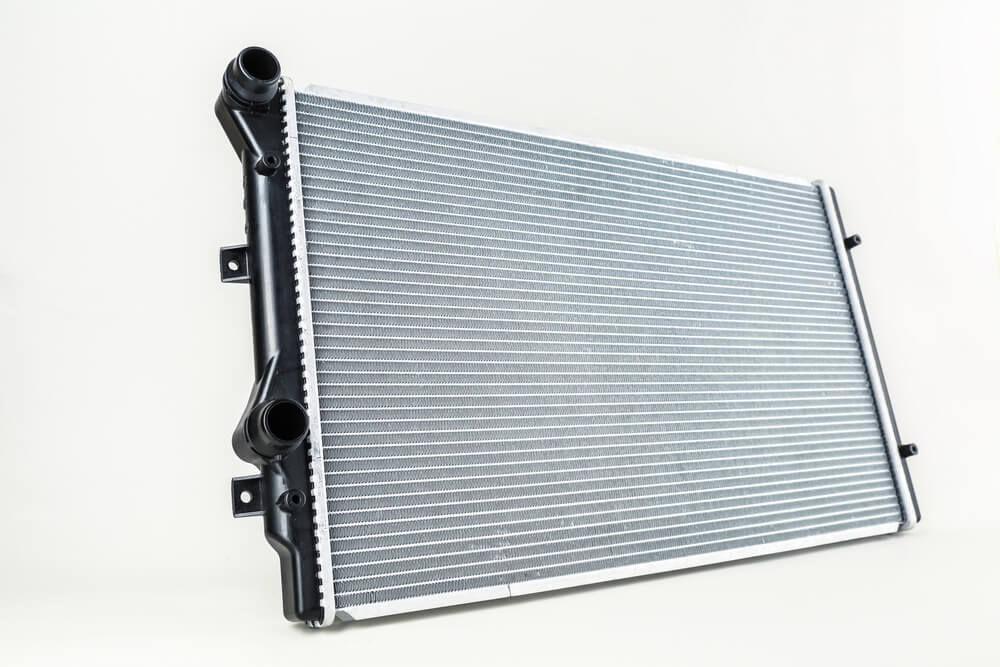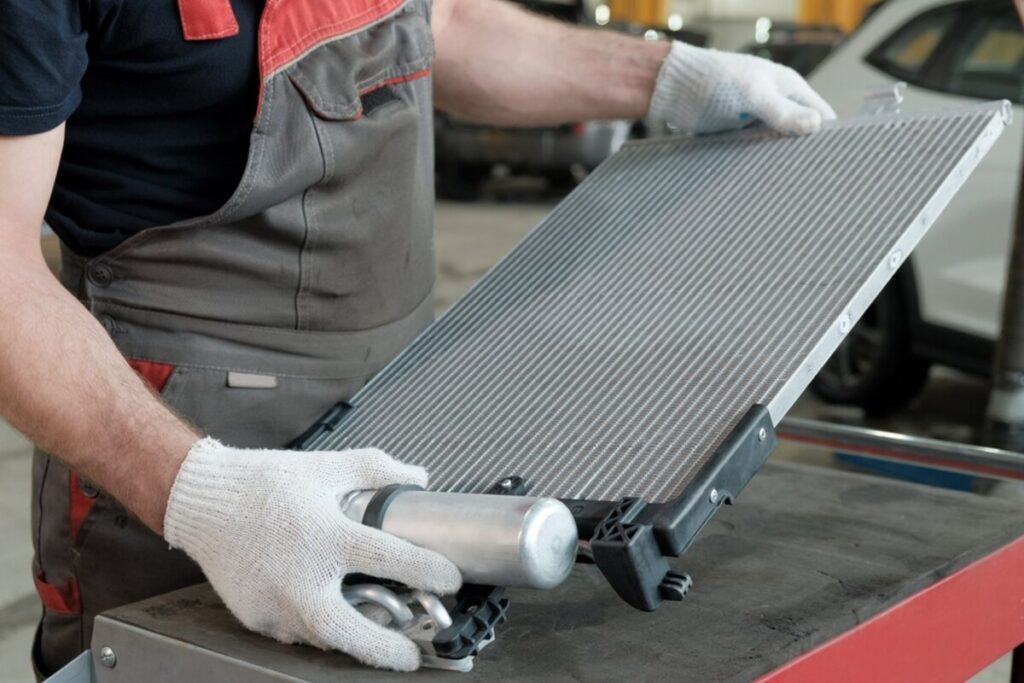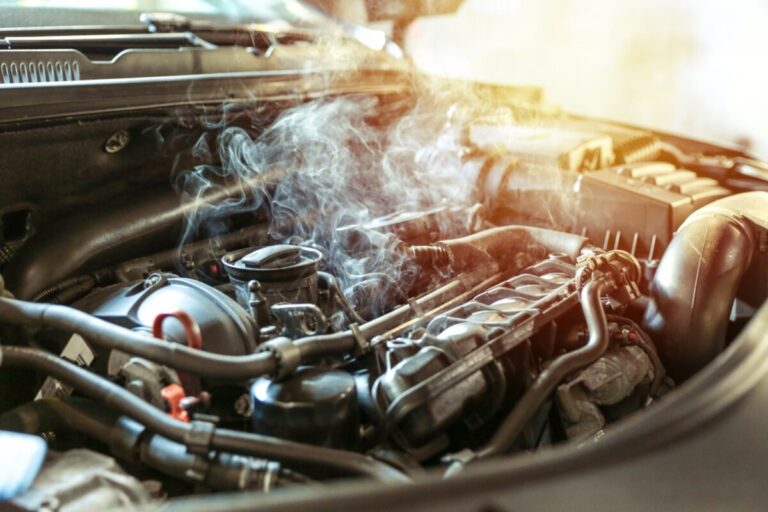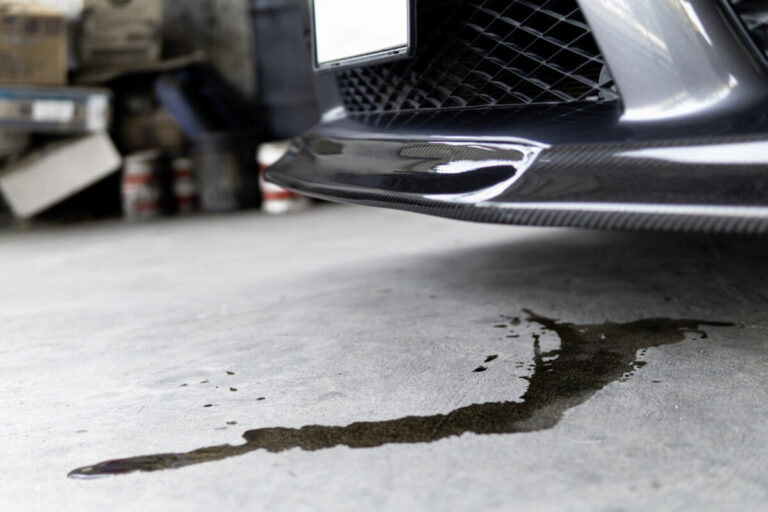Your BMW is more than just a car; it’s a finely-tuned machine designed for performance and precision. However, even the best-engineered vehicles can encounter problems. One critical component that often goes unnoticed until it’s too late is the radiator. If your BMW’s radiator malfunctions, the consequences can be severe, leading to overheating, engine damage, and costly repairs. But how can you tell if your BMW radiator has malfunctioned before it’s too late?
Understanding the Function of Your BMW Radiator
The Radiator’s Role in Your BMW
The radiator is a vital part of your BMW’s cooling system. It works by dissipating the heat generated by the engine as it burns fuel. The coolant flows through the engine, absorbs heat, and then travels to the radiator. Here, the heat is released into the air, keeping the engine at an optimal temperature. A malfunctioning radiator disrupts this process, which can cause your engine to overheat and potentially fail.
Why Radiators Fail
Radiators can fail for several reasons, including corrosion, leaks, blockages, or even damage from road debris. Over time, the materials inside the radiator can wear down, leading to reduced efficiency. When this happens, the radiator can no longer effectively cool the engine, increasing the risk of overheating and engine damage.
Signs That Your BMW Radiator May Be Malfunctioning
Overheating Engine
One of the most obvious signs that your BMW radiator may be malfunctioning is an overheating engine. If the temperature gauge on your dashboard climbs into the red zone, or if you notice steam coming from under the hood, your radiator might not be doing its job. Overheating can cause significant engine damage, so it’s crucial to address this issue immediately.
Coolant Leaks
Another clear sign of a potential radiator issue is a coolant leak. If you see bright green, yellow, or pink fluid under your BMW, it could be coolant. This fluid might be leaking from the radiator itself, or from a hose or connection. A low coolant level can lead to insufficient cooling, causing your engine to overheat.
Sludge Build-Up
Radiator sludge is another common issue that can lead to malfunction. Over time, contaminants can build up in the coolant, turning it into a thick, sludgy substance. This sludge can block the flow of coolant, reducing the radiator’s ability to dissipate heat. If you notice your coolant looks thick or discolored, it’s time to flush the radiator and replace the coolant.
Radiator Corrosion
Corrosion is a silent enemy of radiators. Over time, the metal components inside the radiator can rust, especially if the coolant hasn’t been changed regularly. Corrosion can create holes or weak spots in the radiator, leading to leaks and inefficiency. If you spot rust on the radiator or in the coolant, it’s a sign that the radiator is deteriorating and may soon fail.
Unusual Noises
If you hear unusual noises, such as a hissing or bubbling sound coming from the engine bay, it could be related to the radiator. These sounds might indicate that the coolant is boiling inside the radiator, or that air is trapped in the system due to a leak. Either issue can reduce the effectiveness of the radiator and should be checked by a professional.
What to Do if You Suspect a Radiator Malfunction
Inspecting and Maintaining Your BMW Radiator
If you suspect your BMW radiator is malfunctioning, the first step is a visual inspection. Check the coolant level, look for leaks, and inspect the radiator for signs of corrosion or damage. If you’re not comfortable doing this yourself, it’s wise to take your BMW to a trusted mechanic for a thorough inspection.
When to Replace the Radiator
Sometimes, repairs are not enough, and a full radiator replacement is necessary. If your radiator is severely corroded, leaking extensively, or has suffered physical damage, replacement is the best option to prevent further engine damage. Regular maintenance, such as coolant flushes and inspections, can extend the life of your radiator and ensure your BMW continues to perform at its best.
Conclusion

Your BMW’s radiator is a crucial component that requires attention and care. By being aware of the signs of malfunction—such as engine overheating, coolant leaks, sludge build-up, corrosion, and unusual noises—you can address issues early and avoid costly repairs. Regular maintenance and prompt action when problems arise will keep your BMW running smoothly for years to come. If you suspect any issues with your BMW radiator, don’t wait—contact Euroworx today to ensure your vehicle gets the expert care it deserves.




